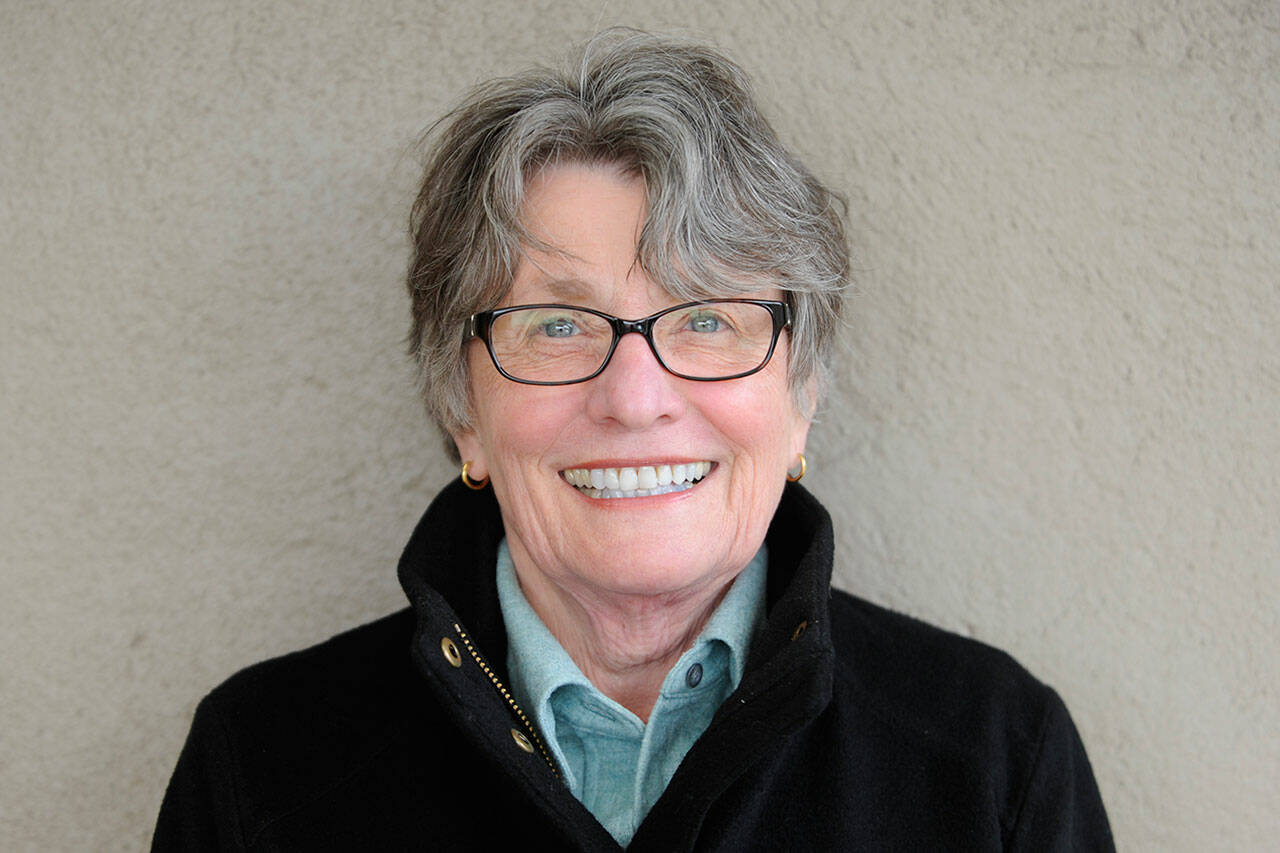Something tugging at the warm burrow I made for myself out of blankets and flannel sheets aroused me. I opened my eyes and was greeted by the smiling face of my husband Paul.
“Wake up.” He cheerfully commanded.
As I became more aware, I began to feel a warmth throughout my being that was unrelated to my burrow. Call it joy, call it love. The wheelchair provided a convenient chair, so I woke hearing his distinctive voice and seeing his face so near to mine.
“You are still beautiful this morning,” he claimed, even though only my eyes peered out of the burrow that hid the growing number of fine lines and deep furrows on my face that only he could love.
He rolled back announcing he had closed the window and I woke up to full awareness, this time with a warm sensation blanketing the place that holds a deep sadness.
Therein is my relationship with the word “woke” other than a public service column I wrote nearly two years ago. I don’t have an emotional reaction to the word woke but know some on the political spectrum do which does make me curious.
Beware
I wrote a column defining terms for people like me who were out of the loop of new language. (“Word roulette” April 21, 2021) I wrote about “Latinx,” “Woke,” “cancel culture” and “white privilege.”
The developing political talking points led me to write in conclusion: “We can use language to divide, to hurt and to hate. Or we can use language to learn, think about happenings from different angles, to talk, to listen. Despite all of some people’s best efforts, the world will not start spinning backwards. Best to move forward with it.”
My worst fears are not nearly as backwards, strange and frightening as what is happening today. Campaigns are taking root in some state governments to fight being “woke,” translate to fight knowledge and awareness as threats to our tender psyches, our way of life and ultimately our pocketbooks.
The anti-woke movement is insidious in legislation and/or policy related to education of young people, although one state proudly flags its legislation as “anti-woke.” Florida’s Governor DeSantis promises “Florida is the place woke goes to die.”
Just to refresh memories of “woke,” here is the description I wrote in the column: “Woke, awareness of racial injustice, was adopted by the Black Lives Matter movement and expanded to calling upon others to be woke and stay woke around the incidents of police killings of unarmed black men.”
Fear of “woke” or better said being aware has grown to encompass additional historical forms of dehumanizing black people such as slavery, lynchings, and less lethal forms of discrimination.
The backlash was swift and certain when Florida passed the “Stop Woke Act” spring of 2022. I encourage readers to go online and read the text of the act filled with what not to do.
The act instead suggests a benign, colorless rendering of circumstances that led into to our nation’s only civil war and the assassination of a President. For example, the teacher is asked to frame the topic of slavery as an infringement on individual freedom and avoid any conscious or unconscious judgement statements that might make any child feel their race was responsible.
In other words, do not say slave owners were white and slaves were black.
History teachers’ brain cells must be somersaulting over lesson plans that comply without breaking ethical and best standards of practices of the teaching profession. It is a bit like asking a surgeon to perform open heart surgery blindfolded to avoid see a woman’s breasts.
Be aware
The idea of education not educating as its primary mission is absurd and if not so mind-numbing, comical. It is very possible that awareness of history however unpleasant will engender empathy and compassion rather than guilt.
An educated understanding of history provides perspective from all angles and may inspire a desire to know more, to abhor rather than ignore, to prevent rather than repeat.
Just as waking in the morning means we are becoming aware of the day, our surroundings and everything that entails so does learning history through age-appropriate lessons. Surely, children can handle the facts of history, however tragic when they are in high school.
If not, then they must learn because they will need the capacity and resilience to deal with difficult revelations throughout their lives. Those are the experiences that makes us strong and, in the end, confident we can handle most that comes our way.
If we are lucky, we learn to shun bitterness and hate and embrace gratitude and love. And, if we are really lucky, we have surrounded ourselves with people who support our well-being as we support theirs.
Then we wake from that burrow of sleep each day prepared to know all of life while we can, no matter what is behind or before us.
Bertha Cooper, an award-winning featured columnist with the Sequim Gazette, spent her career years in health care administration, program development and consultation and it the author of the award-winning “Women, We’re Only Old Once.” Cooper and her husband have lived in Sequim more than 20 years. Reach her at columnists@sequimgazette.com.



